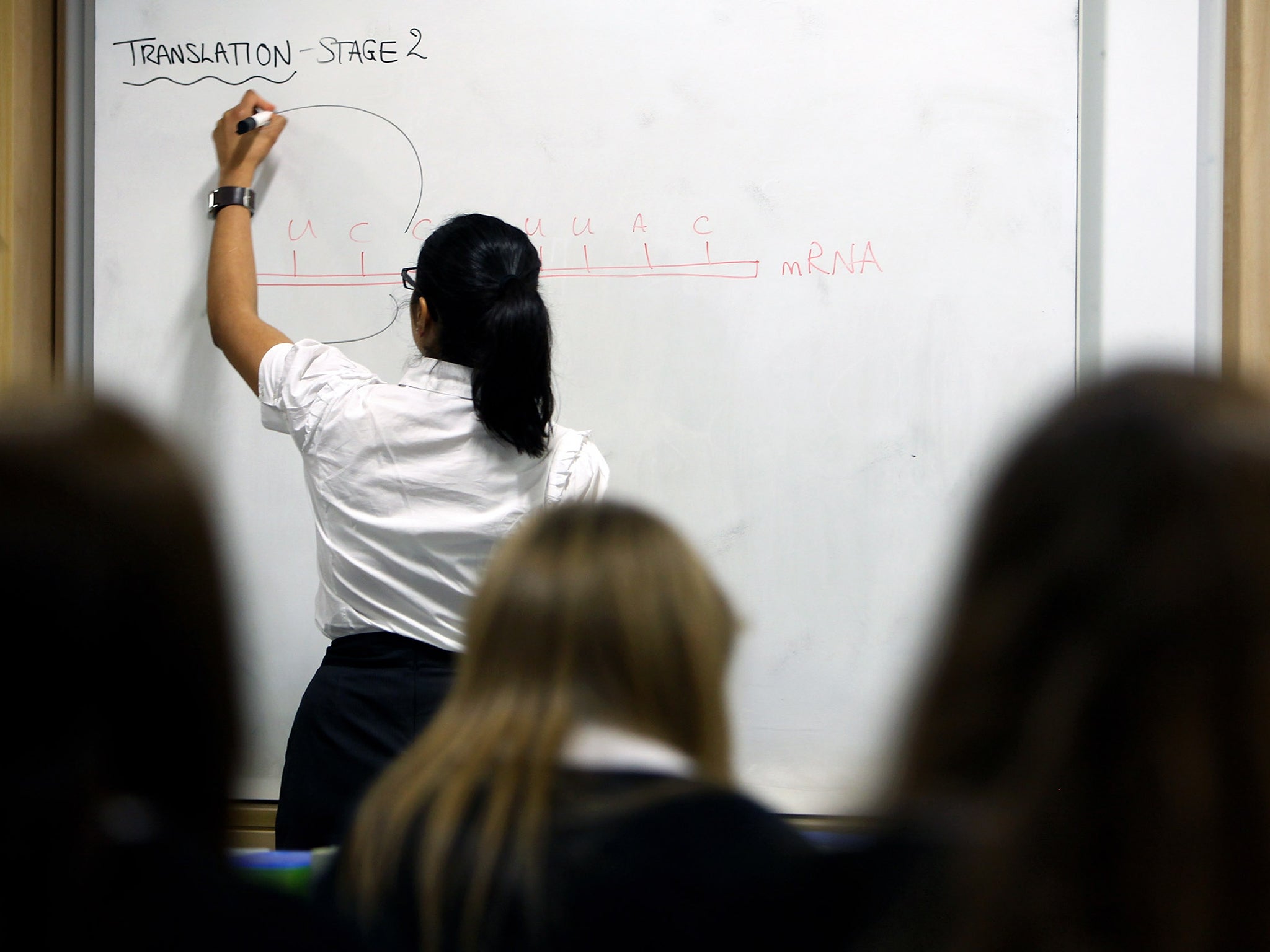Women 'strongly under-represented’ in secondary school headteacher roles, study finds
Nottingham University research suggests it will take 25 years to reach gender parity

Just over a third of secondary school headteachers are female, according to new research that says it will take almost a quarter of a century for women to be properly represented at this level.
Women remain strongly under-represented in senior school headship, it says, with variations between different regions of England.
The paper, by Dr Kay Fuller of Nottingham University, says that the proportion of women holding secondary headships has increased by 13 percentage points in 14 years, from 25% in 2001 to 38% in 2015.
At the same time, currently around 64% of secondary classroom teachers are female.
It will take until 2040 at the current rate of progress in order for the proportion of women headteachers to match the proportion of female teachers, the study concludes.
The findings, published in the Management in Education journal, are based on an analysis of the headships of every secondary school in England.
South East England and South London had the highest proportion of female secondary headteachers at 44.5%, the research found, while the North of England had the lowest at 33.6%.
Dr Fuller said there are many reasons why there are not more women in headteacher roles, including personal, organisational and societal.
For example, women are more likely to take responsibility for childcare, and to take career breaks, she added, and may not come back to a role at the same level.
“This is a matter of social justice; of enabling women to negotiate complex and interacting factors that create barriers to their career advancement. Women's careers are interrupted and disrupted disproportionately to men's,” Dr Fuller said.
“Nor are women teachers' voices proportionately represented at senior levels in secondary schools. Girls and boys need to see women influencing decision-making and leading schools equally with men in this important stage of their personal development and learning.”
Press Association
Join our commenting forum
Join thought-provoking conversations, follow other Independent readers and see their replies
Comments